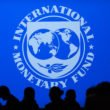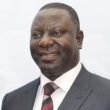ECONOMIST Chibamba Kanyama says while the UPND government is able to deliver on its campaign promises, the party will find it difficult to strike a balance between that and dealing with possible IMF conditionalities.
And economist Professor Oliver Saasa says he is confident that the UPND has capacity to manage Zambia’s resources more efficiently.
Speaking when he featured on a CTPD programme, Thursday evening, Kanyama advised UPND to be realistic and transparent as it embarks on an economic recovery plan.
“I don’t think that this government will have any difficulties negotiating a programme with the IMF. The only challenge they may face is striking a deal between their manifesto promises to the people, not only promises but what they want to achieve particularly to do with subsidisation of the cost of living as well as what potential conditionalities of the IMF will be. The major thing from the IMF of course is that you must balance the budget, you must reduce spending. So to reach that fiscal consolidation will require that you take very tough steps. One of them has to deal with removal of energy subsidies, agricultural subsidies, the FISP. So you have to reduce those and those are contradictory to their manifesto, I’m not so sure but that’s what UPND has been promising the people. You may also find that you want a lean civil service too to meet the demands of the programme, so you may not even employ people. You are promising to employ so many teachers and nurses, so how do you strike that balance?” Kanyama asked.
“My advice is that it (UPND) has one advantage, it comes into power with strong people and what matters most here is two things in my opinion. Number one is to communicate effectively to the people and be realistic. Provide the low laying fruit that people are looking for but be realistic that you won’t be able to achieve this in a short period of time. An IMF program only begins to bear full fruit after three years, of course there will be some fruits along the way but the real fruit comes after three years which will take a bit of time. So you must be realistic to the individuals that we must pay the price. You must go to the people and say are you willing to pay the price? Another thing you must do is demonstrate transparency, demonstrate trust, it must be a trusted government because it will be contradictory to ask people to pay the price in order to bring about full economic recovery and yet you are very extravagant in your spending, corruption still exists, there is no accountability. Once people see that then it will become very difficult to implement the programme.”
Kanyama advised UPND to end corruption as well as ensure there was accountability in management of affairs as this was key in inspiring investor confidence.
“The first thing is to inspire confidence for investments. This is by reducing some of the risks that the country is facing, remember that for international investors, we are at junk status and that affects everything else in terms of stabilizing the Kwacha as well as attracting the needed investment long term. This has to touch on levels of corruption, the perception around corruption is very important. Let us also attend to accountability and transparency in the management of the affairs. All these are linked to political risk as well as the rule of law,” he said.
And speaking on the same program, Prof Saasa explained why an IMF programme was needed in Zambia.
“I think what is important to recognize is the rationale behind the need for a programme with the IMF. Most times people believe it’s about finances that the IMF brings on the table, it is way beyond that. At the moment they are talking with the outgoing government, they have been talking about US$1.3-US$1.4 billion. This when you are dealing with the IMF is not a substantial amount of money, it is fairly limited. What is important about the IMF programme is way beyond the money. One has to recognize that once you have a programme, this is not really a debt that you can contract almost at zero percent, you are talking about a programme that comes with its financial package, there is a program that is linked to this,” he said.
“We need to do certain things to ensure that we head into the right direction. This is structural lending meaning that the whole idea of the package is to make sure that the government is put in a position to be able to manage the fiscus more efficiently, more effectively. Essentially, it means once you have those things in place you are going to attract several other dividends, effects that are positive for growth. The world will look at you more positively and I’m convinced that the incoming government has the capacity to do that. We are looking for foreign direct investment that needs to get into our major economic drivers, in the private sector to play a pivotal role at that level.”
Prof Saasa observed that the economy was currently stressed.
“Presently, the economy is stressed, everybody agrees. GDP growth has hardly grown this year due to a host of reasons including COVID-19. The outgoing government didn’t really put in place systems and structures that allowed excesses especially at the level of investments and expenditures which have brought very little hope at the level of growing the economy. Across at the macro level, you are talking about GDP growth that has been stressed, but also at the sectoral level, we seeing challenges there, agricultural sector is not growing well, the mining sector hasn’t had the stimulus package that you need or expect, but perhaps for the mining sector more importantly we have seen challenges on the fiscal regime that has made growth almost impossible,” said Prof Saasa.
“Expansion in production has been a challenge, the agricultural sector too, the support systems including FISP has not brought about the sort of help to grow the economy in the right direction. We have not put sufficient attention to sectors that are very important in growth for example: tourism. We are yet to see really beyond the challenges that have been brought about by COVID, we have not seen really meaningful challenges been addressed. With the new government coming in, we expect them to look at both the macro level but perhaps more importantly micro-sectoral levels to ensure that we grow the economy going forward.”












